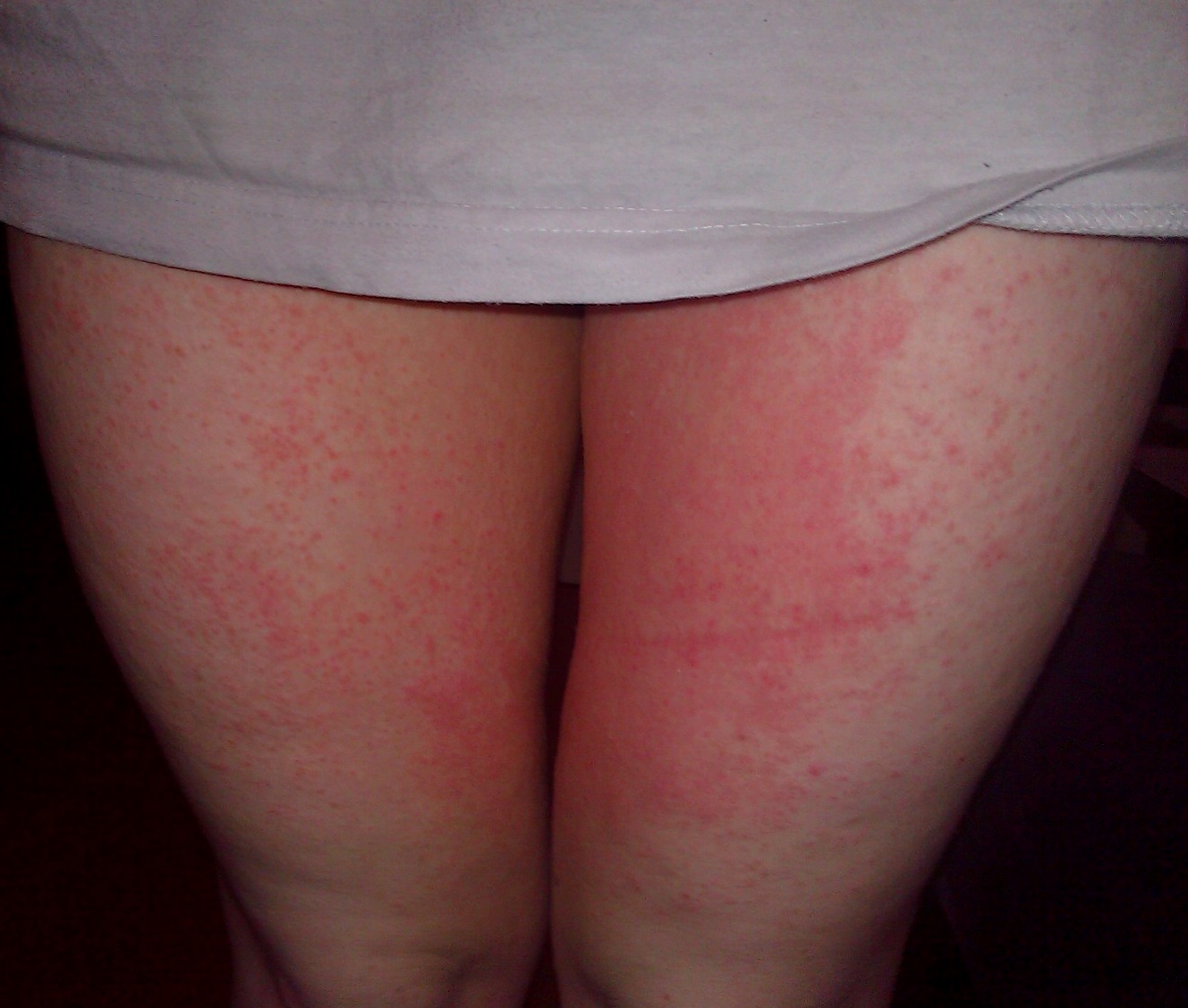


 You should not panic if you notice a rash on your inner thigh. This skin can become red, inflamed or itchy as a result of a health disorder but it could also be a symptom of another problem. Rashes can appear on any part of the body, usually with similar causes. Understanding what could cause a rash to appear can help you get the right treatment for your inflamed skin.
You should not panic if you notice a rash on your inner thigh. This skin can become red, inflamed or itchy as a result of a health disorder but it could also be a symptom of another problem. Rashes can appear on any part of the body, usually with similar causes. Understanding what could cause a rash to appear can help you get the right treatment for your inflamed skin.
The following are the most common causes for a rash to appear on the inner thighs. Note the symptoms and how to prevent them to cut back on the risk that your rash will return.
Contact dermatitis is caused by your skin coming into contact with something that irritates it. Dermatitis on the thighs could be caused by a variety of things such as poison ivy, medication, fabric, lotion, soap, detergent, chemicals or similar items which cause a rash to appear.
Contact dermatitis may also cause burning, itching, tenderness, swelling or sores on the skin. If you believe you have contact dermatitis, bathe to remove the offending substance from your skin and apply a corticosteroid to help the rash fade. Follow the directions for this medication carefully to prevent overuse.
Consuming foods or medications that cause an allergic reaction could cause a rash to appear on the body, including on the inner thighs. It can be difficult to narrow down what you consumed that caused this reaction but common culprits include oily foods, avocado, peanuts, sugary foods, strawberries or shellfish.
Individuals may develop a rash during the summer from excessive sweating. Those with extra weight on their thighs are at a higher risk for developing a sweat rash here because the folds of the skin may rub together and cause irritation. Those with poor hygiene may also be more prone to a rash since irritants are not being regularly removed from the skin.
Very hot and humid weather can cause some to develop boils or a rash. The inner thighs are at a higher risk for developing these symptoms because this area will experience increased sweating during warm weather.
If you are experiencing a sweat rash, applying talcum powder twice a day to the thigh area can help to dry the skin and prevent rash. Some brands include cooling elements that can help soothe your skin as well.
Jock itch or a tinea cruris fungi infection cause itching, scales or a rash on the skin which will form blisters and then ooze. The skin affected by this fungus will often have a sharply defined edge around a red rash that has patches of normal skin in the middle of the red rash.
If you believe you have a fungal infection, apply anti-fungal powder or cream twice a day.
Swimmer’s itch is caused by exposure to water contaminated by the Schistosoma parasite which can burrow into the skin and cause a rash. This is more common in tropical water than in waterways in the United States. As the parasite burrows into the body it can start to mature in the lungs or liver. Symptoms of this infection include abdominal pain, diarrhea or a rash.
Atopic dermatitis is the medical name for the skin condition eczema which causes the skin to become hypersensitive. This is more common in children though some adults will see symptoms when they experience allergies, stress, cold or dry skin.
Your thighs may develop inflammation, blisters, redness or changes in color and as you scratch these areas might become raw and leathery. When an eczema breakout occurs work to keep your skin moist using things like petroleum jelly or lotion that does not contain irritants such as fragrance or alcohol. Cold compresses may also be helpful in reducing itching.
Mild rashes will often fade on their own but if the rash on your inner thighs is severe you may need to seek medical attention. There are a variety of treatments including steroids, allergy medications, natural remedies or immunosuppressant drugs which could help with your symptoms depending on the root cause. A physician or pharmacist can help you determine which remedy is the most appropriate. Just be sure to avoid scratching which could irritate the skin further. Below are more remedies: